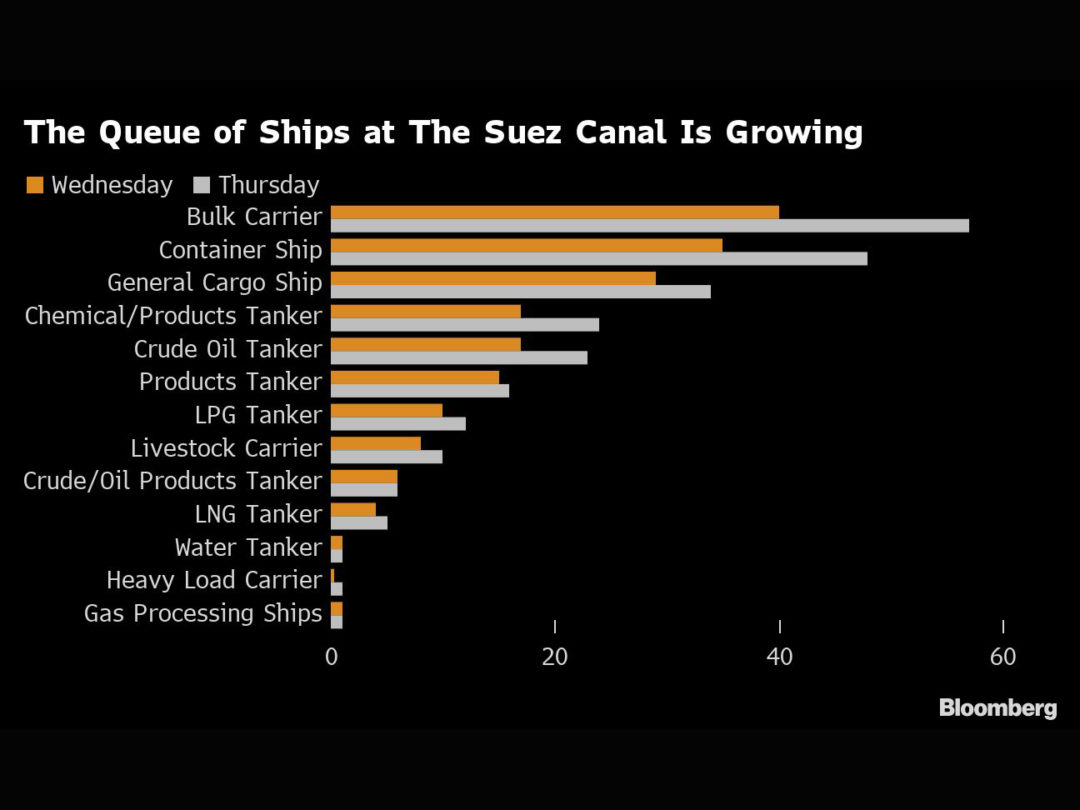
Visit Our Sponsors |
|
|
|
|
|
|
|
|
|
|
|
|
|
|
|
|
|
|
|
|
|
|
|
|
|
|
|
|
|
|
|
|
|
|
|
|
|
|
|
|
|
|
|
|
|
|
|
|
|
|
|
|
|
|
|
|
|
|
|
|
|
|
|
|
|
|
|
|

The number of ships waiting to enter the Suez Canal is growing as the waterway remains blocked by Ever Given, a stranded container ship longer than the Eiffel Tower, and a look at the type of cargoes waiting to pass show the shipping delays will affect a range of industries. Vessels are carrying everything from live animals to liquefied natural gas.
Data compiled by Bloomberg shows there were 238 vessels queued up Thursday, compared with 186 counted on Wednesday and around 100 at the start of the blockage.
Work to re-float the giant container ship continued without success. The best chance for freeing the ship may not come until Sunday or Monday, when the tide will reach a peak, according to Nick Sloane, the salvage master responsible for refloating the Costa Concordia, the cruise ship that capsized on the coast of Italy in 2012.
Countries rely on the Suez Canal, a chokepoint for international trade, to get speedy shipments of the commodities that power everyday life, like propane to heat houses and crops that feed animals and humans. A lengthy delay could further stretch supply chains that have already been disrupted by the coronavirus pandemic.
While the impacts to various markets aren’t yet clear, considerable delays could be seen in the loading schedule at Qatargas in early April if the Suez Canal congestion persists, according to London-based research firm Kpler. Oil tankers in the queue are carrying about 8.8 million barrels of oil, according to Kpler.
Several liquified natural gas cargoes from Qatar and the U.S. await passage, and an additional 15 LNG vessels are en route to the canal and could be affected if Ever Given is not removed quickly, according to Kpler.
Measuring more than 1,300 feet (400 meters), Ever Given was headed from China to Rotterdam when a sandstorm with high winds ran the ship aground Tuesday morning local time.
RELATED CONTENT
RELATED VIDEOS
Timely, incisive articles delivered directly to your inbox.

